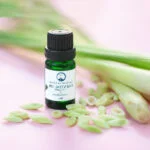Peppermint aromatherapy is a popular practice known for its invigorating and refreshing properties. But is peppermint aromatherapy safe during pregnancy? Expectant mothers often seek natural remedies to alleviate common pregnancy symptoms, making aromatherapy an appealing option. Aromatherapy involves the use of essential oils extracted from plants to promote physical and psychological well-being. Specifically, peppermint oil is praised for its cooling effect and potential benefits for relieving nausea, headaches, and promoting relaxation.
During pregnancy, women must be cautious about the products they use, including essential oils. Safety concerns arise as certain essential oils may have adverse effects on both the mother and the developing fetus. It is crucial for pregnant women to understand the general safety factors associated with aromatherapy and why some essential oils should be avoided during this delicate time. Peppermint essential oil, in particular, has sparked interest due to its various therapeutic qualities.
Research on the safety and efficacy of peppermint aromatherapy during pregnancy provides valuable insights for expectant mothers considering this holistic approach. Studying any potential risks or benefits associated with peppermint oil can help pregnant women make informed decisions about incorporating it into their wellness routine safely. By consulting with healthcare providers and following recommended usage guidelines, expectant mothers can enjoy the aromatic benefits of peppermint while prioritizing their health and that of their unborn child.
Safety Concerns in Pregnancy
Peppermint aromatherapy, like many other essential oils, can offer a range of benefits for pregnant women. However, there are some safety concerns that need to be taken into consideration when using any type of aromatherapy during pregnancy. It is essential for expecting mothers to understand the precautions and risks associated with essential oils to ensure the well-being of both themselves and their developing baby.
During pregnancy, the body undergoes various changes, making it more sensitive to certain substances. This heightened sensitivity also applies to essential oils used in aromatherapy. Some essential oils contain compounds that may be harmful or trigger adverse reactions during pregnancy. It is crucial for pregnant women to avoid oils such as sage, basil, rosemary, and others known for potentially causing issues during pregnancy. Understanding which essential oils are safe and beneficial for use during this time is key.
When considering peppermint aromatherapy during pregnancy, it is important to note that peppermint oil is generally considered safe when used in moderation and diluted properly. However, due to its menthol content, some experts recommend avoiding peppermint oil in high concentrations during later stages of pregnancy as it could potentially stimulate contractions or affect blood flow.
While peppermint aromatherapy can help alleviate nausea, headaches, and muscle pain commonly experienced during pregnancy, it is best to consult with a healthcare provider before incorporating it into your routine.
Peppermint Aromatherapy Benefits
Peppermint aromatherapy offers various benefits that can be particularly beneficial during pregnancy. One of the key advantages is its ability to alleviate nausea and morning sickness, which are common symptoms experienced by many pregnant women.
The refreshing aroma of peppermint oil can help reduce feelings of queasiness and provide relief from these discomforts. Inhaling peppermint essential oil through a diffuser or diluted in a carrier oil for topical application on the skin is a popular way to harness its anti-nausea properties.
In addition to combating nausea, peppermint aromatherapy is known for its uplifting and invigorating effects on mood and energy levels. Many pregnant women experience fatigue and low energy during different stages of their pregnancy, and using peppermint oil can help promote alertness and mental clarity. The scent of peppermint is often associated with improved focus and concentration, making it a great choice for expectant mothers who may be feeling mentally foggy or lethargic.
Moreover, the cooling sensation provided by peppermint aromatherapy can also soothe headaches or migraines that commonly occur during pregnancy. Applying a diluted solution of peppermint oil on the temples or inhaling it through steam inhalation may help alleviate headache symptoms naturally. It is important to note that while peppermint aromatherapy offers several benefits for pregnant women, it is crucial to use it safely and consult with a healthcare provider before incorporating it into your routine as an extra precaution.
| Benefits | Method |
|---|---|
| Alleviates Nausea | Inhalation or Topical Application |
| Uplifting & Invigorating | Aromatherapy Diffuser |
| Soothes Headaches | Topical Application or Steam Inhalation |
Research on Peppermint Aromatherapy and Pregnancy
When it comes to peppermint aromatherapy during pregnancy, many women are concerned about its safety and efficacy. Research on the topic is essential to provide evidence-based information for expectant mothers. While there is limited specific research solely focused on peppermint aromatherapy during pregnancy, studies on the safety and benefits of peppermint essential oil can offer some insights.
One study published in the Journal of Midwifery & Women’s Health examined the effects of aromatherapy massage using a blend of lavender, peppermint, and sesame oils on pregnant women experiencing back pain. The results showed that the aromatherapy massage significantly reduced pain levels compared to conventional massage techniques. This suggests that when used as part of a massage blend, peppermint essential oil may be beneficial for alleviating pregnancy-related discomfort.
Another study published in Evidence-Based Complementary and Alternative Medicine explored the effects of inhaled peppermint oil on nausea and vomiting during pregnancy. The findings suggested that inhaling diluted peppermint oil could help reduce symptoms of nausea and vomiting in pregnant women. However, it is important to note that individual reactions may vary, so it is crucial to consult with a healthcare provider before using peppermint aromatherapy during pregnancy.
Recommended Usage
Peppermint essential oil is a popular choice for aromatherapy due to its refreshing and invigorating scent, making it a go-to option for many individuals. However, when it comes to using peppermint aromatherapy during pregnancy, there are some important considerations to keep in mind. While peppermint oil is generally considered safe for use during pregnancy, it is crucial to follow recommended guidelines to ensure the safety of both the mother and the baby.
Guidelines for Safe Usage
When using peppermint essential oil during pregnancy, it is essential to dilute the oil properly before applying it topically or using it in a diffuser. A common dilution ratio is 1% to 2% essential oil in a carrier oil, such as coconut or jojoba oil. This helps to minimize any potential skin sensitivities or reactions that may occur, especially during pregnancy when the skin can be more sensitive.
Methods of Application
There are various ways to incorporate peppermint aromatherapy into your routine during pregnancy. Inhalation through a diffuser is a popular method that allows you to enjoy the benefits of the essential oil without direct skin contact. Another option is adding a few drops of diluted peppermint oil to a warm bath for a relaxing experience. Additionally, you can blend peppermint with other pregnancy-safe essential oils like lavender or chamomile for a soothing aroma.
Special Considerations
It is important to note that while peppermint aromatherapy is generally safe for most pregnant women, each individual may react differently. If you have any existing health conditions, allergies, or concerns about using peppermint essential oil during pregnancy, it is best to consult with your healthcare provider before incorporating it into your routine. Your healthcare provider can provide personalized guidance based on your unique situation and help ensure a safe and enjoyable experience with aromatherapy during this special time.
Consulting With a Healthcare Provider
Importance of Consulting With a Healthcare Provider
When it comes to using essential oils, including peppermint aromatherapy during pregnancy, it is crucial for expecting mothers to consult with their healthcare providers. While aromatherapy can offer numerous benefits, there are specific considerations that need to be taken into account during pregnancy. Healthcare providers can provide personalized advice based on the individual’s health history, any current conditions, and the stage of pregnancy.
Talking to Your Healthcare Provider
During your prenatal visits, take the opportunity to discuss your interest in using peppermint aromatherapy with your healthcare provider. Be open and honest about your intentions and ask for guidance on whether it is safe for you and your baby. Your provider may have valuable insights or recommendations on how to incorporate peppermint oil into your wellness routine safely.
Tips for Discussing Peppermint Aromatherapy
To ensure a productive conversation with your healthcare provider about using peppermint essential oil during pregnancy, consider bringing specific questions or concerns to address. You can inquire about suitable dilution ratios, application methods, and frequency of use. Additionally, it is essential to communicate any prior experiences or sensitivities you may have had to aromatherapy products in the past. By being proactive and engaging in open communication, you can establish a plan that aligns with your healthcare provider’s recommendations.
Potential Risks and Side Effects
During pregnancy, it is important to be cautious when using essential oils for aromatherapy due to the potential risks and side effects that can arise. While peppermint aromatherapy is widely known for its various benefits, including easing nausea and promoting relaxation, there are certain precautions expectant mothers should take into consideration.
To ensure the safety of both the mother and baby during pregnancy, here are some potential risks and side effects of using peppermint essential oil for aromatherapy:
- Uterine Stimulant: Peppermint oil is considered to have emmenagogue properties, which means it can stimulate blood flow in the pelvic area and uterus. This can potentially lead to uterine contractions and may pose a risk of miscarriage, especially during the first trimester.
- Allergic Reactions: Some individuals may be sensitive or allergic to peppermint oil, leading to skin irritation or respiratory issues when used in aromatherapy. It’s crucial to perform a patch test before widespread use.
- Gastrointestinal Upset: Ingesting large amounts of peppermint oil or inhaling it excessively through diffusers can sometimes cause gastrointestinal disturbances like heartburn or upset stomach.
It is vital for pregnant women considering peppermint aromatherapy to proceed with caution and consult with their healthcare provider prior to use. Any concerns about the potential risks and side effects should be addressed with a professional who can provide personalized advice based on individual circumstances. The well-being of both mother and baby should always be the top priority during pregnancy.
Alternative Options
During pregnancy, many women may prefer to err on the side of caution when it comes to using essential oils like peppermint in aromatherapy. While peppermint aromatherapy can offer numerous benefits, some individuals may opt for alternative options that are considered safe during pregnancy. Here are some alternative essential oils and aromatherapy practices that pregnant women can consider:
- Lavender: Known for its calming and relaxing properties, lavender essential oil is a popular choice during pregnancy. It can help alleviate anxiety, improve sleep quality, and relieve nausea.
- Chamomile: Chamomile essential oil is gentle and soothing, making it a great option for reducing stress and promoting relaxation during pregnancy. It can also help with sleep issues and digestive discomfort.
- Citrus oils: Citrus essential oils like sweet orange or lemon can uplift the mood and provide a refreshing aroma without causing any harm during pregnancy. They are commonly used to combat fatigue and morning sickness.
In addition to exploring different essential oils, pregnant women can also try alternative aromatherapy practices that do not involve the use of essential oils. These methods focus on creating a relaxing environment and promoting well-being without the direct application of potent aromatic substances. Some non-essential oil aromatherapy options include:
- Dry brushing: This technique involves gently brushing the skin with a dry brush to improve circulation, exfoliate the skin, and promote lymphatic drainage.
- Aromatherapy jewelry: Aromatherapy bracelets or necklaces are wearable accessories that allow individuals to benefit from essential oils throughout the day without direct contact with the skin.
- Scented candles: Opting for natural soy or beeswax candles infused with safe fragrances can create a cozy atmosphere and enhance relaxation without the need for diffusing essential oils.
By considering these alternative options, pregnant women can still enjoy the benefits of aromatherapy while prioritizing their safety and well-being. It’s important to explore different choices, consult with healthcare providers if necessary, and select practices that suit individual preferences and needs during this special time.
Conclusion
In conclusion, the question of whether peppermint aromatherapy is safe during pregnancy requires careful consideration and consultation with a healthcare provider. While peppermint essential oil is generally considered safe for external use, it is crucial to follow recommended guidelines on dilution ratios and methods of application to avoid any potential risks or side effects. Research on the safety and efficacy of peppermint aromatherapy during pregnancy is limited, so it is essential to approach its use cautiously.
For pregnant women looking to explore the benefits of aromatherapy, there are alternative options available that are known to be safe during pregnancy. Essential oils such as lavender, chamomile, and citrus oils like orange or lemon can provide similar soothing effects without the concerns associated with peppermint oil. These alternative options can still offer relief from common pregnancy discomforts such as nausea, headaches, and stress when used appropriately.
Ultimately, the decision to use peppermint aromatherapy or any essential oil during pregnancy should be made based on individual needs and preferences. It is always best to err on the side of caution and seek guidance from a healthcare provider before incorporating any new wellness practice into your prenatal care routine. By staying informed and consulting with professionals, expectant mothers can ensure a safe and beneficial experience with aromatherapy during pregnancy.
Frequently Asked Questions
Which Essential Oils Should Be Avoided During Pregnancy?
Essential oils that should generally be avoided during pregnancy include basil, rosemary, clary sage, and juniper berry. These oils can potentially stimulate contractions or negatively affect hormone levels, which may not be safe for the developing fetus.
Is Peppermint Extract Safe During Pregnancy?
Peppermint extract is generally considered safe to use during pregnancy when consumed in normal food amounts. However, it is advised to consult with a healthcare provider before using peppermint extract in larger quantities or in concentrated forms due to its potential effects on pregnancy.
Can I Use Peppermint Halo When Pregnant?
The safety of using Peppermint Halo, a blend of essential oils including peppermint, during pregnancy is a topic that should be discussed with a healthcare provider. While some essential oils in the blend may be safe, it’s best to seek professional advice before use.

Are you looking for a natural way to improve your health and wellbeing?
If so, aromatherapy may be the answer for you.





